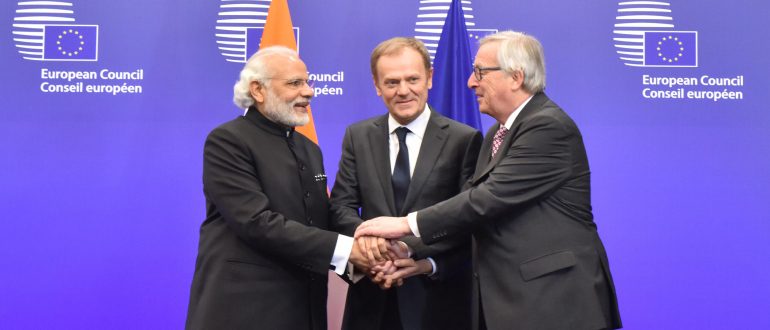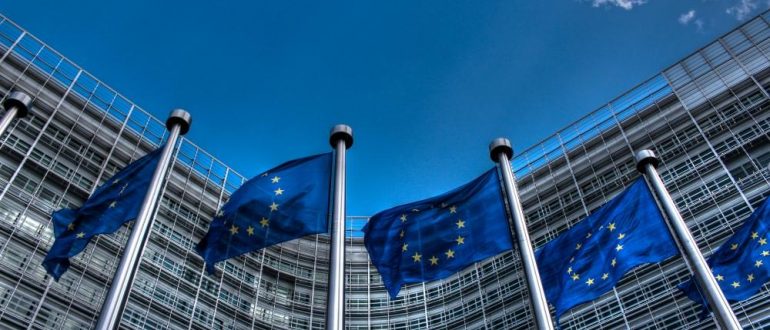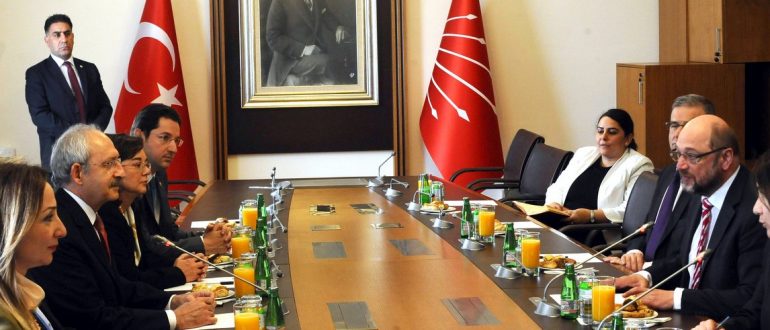Do the Lilliputs matter in European Union Foreign Policy?
Small member states sometimes face difficulties to have a voice in the European Union. Do they “matter” in European Union Foreign Policy or is this policy area dominated by big member states like Germany, France, and the United Kingdom? This article analyses the principles and instruments of EU Foreign Policy and looks into the significant role of the Council Presidency in Foreign Policy until the Lisbon Treaty came into force. Since 1 December 2009, however, its role is marginalised, and particularly the small member states must look for new ways to shape EU Foreign Policy.
1. Introduction
The European Union (EU) provides opportunities for member states to conduct joint foreign policy actions at a lower cost and with less risks than if they were acting on their own.[1] Roy Ginsberg (1989) has called this “Politics of Scale”. But do small EU member states matter – or is EU foreign policy the business of a directoire of Germany, France, and the United Kingdom?
All member states that did not have two Commissioners (these were Germany, France, Italy, Spain, and the United Kingdom) until the Eastern Enlargement shall be considered as small member states (“Lilliputs”), including all new member states (except Poland that would have had two Commissioners, if the rules of the Nice Treaty had still been in practice), i.e. 21 out of 27 shall be considered “small”. Foreign Policy is defined here as “the attempt to design, manage and control the external activities” of an international actor so as “to protect and advance agreed and reconciled objectives”.[2] EU member states of any size “matter”, if they can shape and/or influence EU Foreign Policy.
2. Two principles of EU Foreign Policy: Intergovernmentalism and Consensus
While the treaty gives member states the possibility to abstain (“constructive abstention”) on Foreign Policy decisions, the general mode of decision making is consensus. Consequently, each member state has de facto a veto. Even in the “first pillar” this effect is widely known, but especially in Foreign Policy “the Union continues to strive for a consensus among all its members.”[3] EU Foreign Policy has remained intergovernmental with separate procedures, although the second pillar has de jure been abolished with the Lisbon Treaty.
Consequently, all member states can shape European Foreign Policy according to their wishes (their preferences). The institutional design of EU Foreign Policy allows member states to block decisions, if they are not in favour. The same principles apply to small member states. If they do not achieve to “upload” their preferences, i.e. to project ideas, preferences, and models from the national to the supranational level[4], at least they can prevent any EU Foreign Policy against their preferences.
3. Sanctions as an Instrument of EU Foreign Policy
Instruments in Foreign Policy have been grouped into four categories: Propaganda, economics, diplomacy, and military.[5] These categories and their instruments have been used at the national level and have been (partly) transferred to the European level. The economic instrument of sanctions shows both the influence of the nation state and its weakness if used by one member state alone. Lists of “Restrictive measures” of the EU against third countries (sanctions) provide a detailed catalogue of the EU toolbox – amongst others the following measures were in force against Côte d’Ivoire in late 2010: an embargo on arms and equipment for internal repression, restrictions on the “admission of certain persons […] [and] freezing of funds and economic resources of certain persons who constitute a threat to the peace and national reconciliation process in Côte d’Ivoire.”[6]
If every European state had worked on its own set of sanctions, the effectiveness of the “European” response would have been limited. Lower costs and less risks (what Ginsberg has called “Politics of Scale”) allow for more European weight. In particular small member states can multiply the power of their initiative significantly, if they rely on EU Foreign Policy instruments.
4. The former role of the Council Presidency
Occasional agenda setting and pursuing one’s own preferences at the EU level are the most important means for small member states to be heard in Europe and worldwide. The High Representative/Vice President chairs the Foreign Affairs Council (FAC) since the Lisbon Treaty entered into force on 1 December 2009 (Article 18(3) TEU). All 27 national foreign ministers are represented in the new FAC that is one of the different formations within the Council of the European Union (the Pre-Lisbon “General Affairs and External Relations Council” had been split into the General Affairs Council and the FAC). While there have been good reasons (like coherence and consistency) for implementing this innovation, member states’ agenda setting powers in Foreign Policy have been reduced.
In the past, member states have been successful in uploading (project ideas, preferences and models from the national to the supranational level) their geographical preferences and were able to create initiatives for different neighbouring regions. An obvious example of such an initiative is the “Union for the Mediterranean” under the French Council Presidency in the second half of 2008. Two initiatives targeting other neighbouring regions, the North (Northern Dimension Initiative, 1997) and the East (Eastern Partnership, 2009) illustrate the chances of small member states: Finland was able to put the Northern Dimension on the agenda even when it did not hold the Council Presidency[7] which is generally assumed to constitute a necessary condition for agenda setting. The more recent example, the Eastern Partnership under the Czech Council Presidency, however, has not fulfilled expectations so far: All member states would have to show more commitment and give more resources. Originally an idea from Sweden and Poland, the Czech Presidency stressed its own role:
“The Presidency guided the preparations and the adoption of the concept of the Eastern Partnership. Leaders of the European Union and six partner countries – Armenia, Azerbaijan, Belarus, Georgia, Moldova and Ukraine – officially launched the Eastern Partnership by adopting a joint declaration at the Eastern Partnership Summit on 7 May 2009 in Prague.”[8]
In reality, the summit was of no interest to their European partners: The respective Heads of State and Government from Austria, France, Italy, Portugal, Spain, and the United Kingdom were absent.[9] Thus, a majority of the large EU member states did not attend the summit. The uploading of Czech interests to the EU level has, if at all, only been partly successful. Even holding the Council Presidency is no guarantee for the projection of ideas and preferences from the national to the supranational level. But obviously, it would have been completely impossible for the Czech Republic to initiate the “Eastern Partnership” outside the institutional context of the EU.
5. Conclusion: What can small member states do after Lisbon?
EU Foreign Policy allows all its member states, including small member states, to exploit “Politics of Scale” and to upload their preferences. Small member states do matter and EU Foreign Policy is not just the business of a directoire. These advantages for all 27 member states continue to exist and the nature of the policy area is still characterised by intergovernmentalism and consensus. However, member states have been deprived of their rotating role as the chair of the Foreign Affairs Council. This agenda setting role of the Council Presidency in EU Foreign Policy had been helpful, as the examples of regional initiatives have shown.
Small member states have few alternatives to their commitment to EU Foreign Policy. Not only the foreign ministers of small member states worry about their new role, the declining importance of national foreign ministers is a general trend within the EU institutions: Foreign ministers no longer participate alongside their Heads of State and Government at European Council summits. In order to reflect on the post-Lisbon reality, Alexander Stubb, the Finnish Foreign Minister, invited several of his colleagues to an informal meeting in March 2010.[10] Small member states – Finland is one of them – must continue to search a suitable response: Without the agenda setting function of the Council Presidency, small member states have to find new ways to avoid a directoire of the big member states in EU Foreign Policy. In the late 1990s Finland already had been a successful agenda setter when launching the Northern Dimension.
Valentin Kreilinger
Valentin Kreilinger currently studies Political Science at the London School of Economics.
Bibliography
Arter, David (2000), ‘Small State Influence Within the EU: The Case of Finland’s ‘Northern Dimension Initiative”, Journal of Common Market Studies, 38 (5), 677-97.
Barber, Tony (2009), ‘Brown’s no-show at Prague summit riles the EU’s east’, Brussels blog (updated 08/05/09) <http://blogs.ft.com/brusselsblog/2009/05/browns-no-show-at-prague-summit-riles-the-eus-east/>, accessed 31/07/11.
Czech Presidency (2009), ‘Achievements of the Czech Presidency. Europe without Barriers’, <http://www.eu2009.cz/scripts/file.php?id=61211&down=yes>, accessed 31/07/11.
European Union (2010), ‘Council decision 2010/656/CFSP of 29 October 2010 renewing the restrictive measures against Côte d’Ivoire’, L 285/28, Official Journal of the European Union.
Ginsberg, Roy H. (1989), Foreign policy actions of the European Community : the politics of scale (Lynne Rienner: Boulder).
Kupchan, Charles A. (1996), ‘From European Union to Atlantic Union’, in Jan Zielonka (ed.), Paradoxes of European Foreign Policy (The Hague: Kluwer Law International), 147-63.
Larsen, Henrik (2005), Analysing the foreign policy of small states in the EU : the case of Denmark (Palgrave Macmillan: Basingstoke).
Ojanen, Hanna (2001), The Northern Dimension : fuel for the EU ? (Programme on the Northern Dimension of the CFSP; Helsinki, Bonn: Ulkopoliittinen instituutti, Institut für Europäische Politik).
Rinke, Andreas (2010), ‘Lisbondämmerung’, Internationale Politik Global Edition, May/June 2010, <http://www.ip-global.org/2010/05/01/lisbondammerung/>, accessed 31/07/11.
Smith, Karen E. (2008), European Union foreign policy in a changing world (2nd edn.; Polity: Cambridge).
Wivel, Anders (2005), ‘The Security Challenge of Small EU Member States: Interests, Identity and the Development of the EU as a Security Actor’, Journal of Common Market Studies, 43 (2), 393-412.
Wong, Reuben (2005), ‘The Europeanization of Foreign Policy’, in Christopher Hill and Michael Smith (eds.), The International Relations of the European Union (Oxford: Oxford University Press), 134-53.
[1] Ginsberg 1989.
[2] Wong 2005: 139.
[3] Kupchan 1996: 154.
[4] Wong 2005: 137.
[5] Smith 2008: 54.
[6] European Union 2010.
[7] Arter 2000, Ojanen 2001.
[8] Czech Presidency 2009: 32.
[9] Barber 2009.
[10] Rinke 2010.



